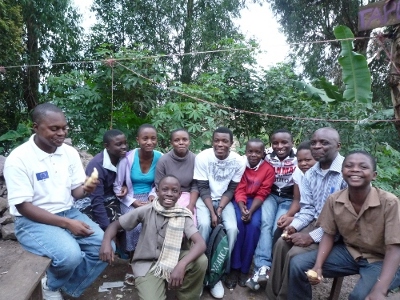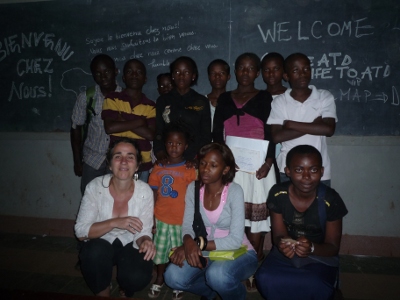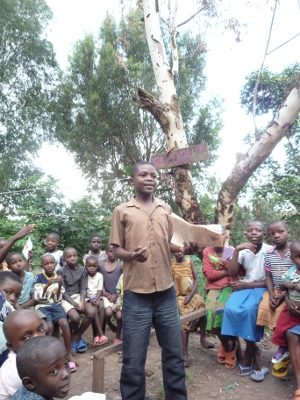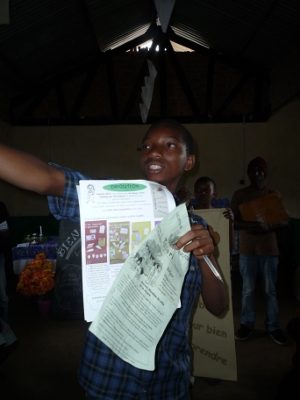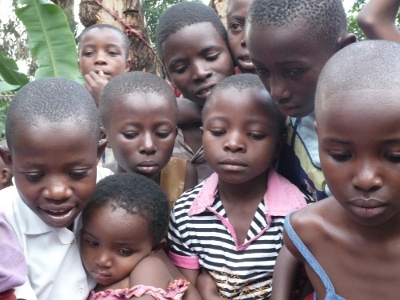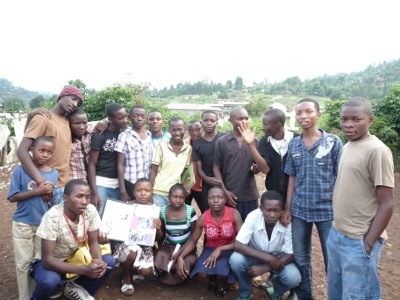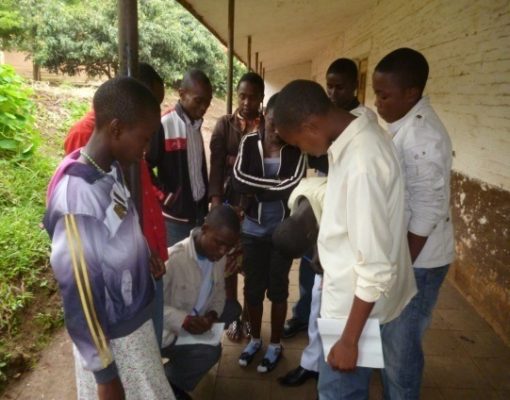After Growing Up With Tapori, Young People Ensure that Other Children Do Too
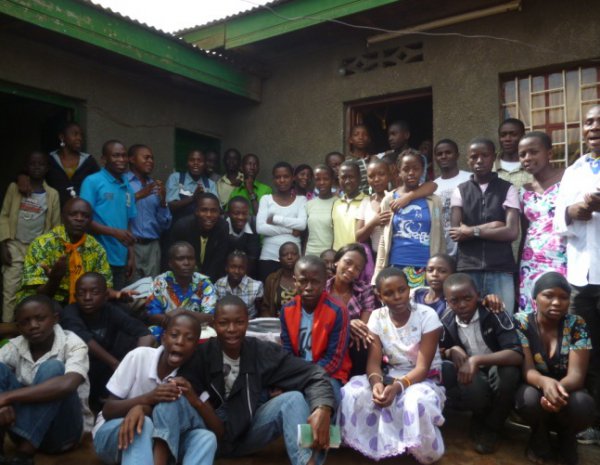
Bukavu, the Democratic Republic of Congo – Tapori groups have existed here for 15 years. Hundreds of children have thrived in these groups, seeking to become “friends of the friendless” and to build relationships with children around the world.
As Tapori participants grow into young adults, many of them wish to continue in the same spirit. This desire to keep making positive contributions to their community has led them to create youth groups with several objectives:
- To prepare children’s Tapori meetings in their neighbourhoods;
- To train themselves to become good facilitators;
- To provide a place where young people can reflect on their own lives, supported with the guidance of a few adults;
To perform community services in their neighbourhoods.
Today, there are thirty young people active in these groups. Aged 14 to 18, they live in Burhiba, Kadutu and Muhungu. They are admired by their elders, like René, who stated: “If we ask them why they spend their time with the children, these young people can’t say. But if we watch them, we can see their thirst to engage with the life around them.”
Most of these young people draw motivation from their own personal experience participating in Tapori as children. Nathalie, age 15, who in 2009 traveled to Switzerland to participate in an international Tapori event, feels that “at Tapori, everyone is considered the same as everyone else. When you’re with Tapori, there is no way for a rich child to show off. Even if you are rich, you are like everyone else”. Rosine reflected, “When I was a child, the Tapori facilitators taught me not to make fun of others. I wanted to facilitate gatherings, to show the children what I had learned. We counsel children not to fight, not to make fun of those who fall so that they become good people.”
Far from feeling superior to the younger children, these youth know how to recognize what they learn from them. For Nadine, “The children teach me the value of friendship. When adults fight, they go their separate ways; but when children fight, they eventually get together again and work through their problems.”
Some of the young people dreamt for a long time of becoming a facilitator. Nathalie remembers, “They would read books and letters to us, and I would also read to the children. I dreamt of being a facilitator because of all the messages. They weren’t like water that merely passes through; they helped lift our spirits.”
As for Laurent, he was frustrated when, at the end of a Tapori activity, children like him had to leave while the facilitators remained together to keep talking. However, he has good memories of their group projects: “Organizing an exhibit of ‘dazibaos’1 in the city centre, participating in a radio show, this inspired me to become a facilitator.”
Not all of the Tapori participants chose to continue. But Julien says that even after leaving the group, he chose to return because: “Tapori is like my left lung.”
Some young people are capable of facilitating children’s activities without first- or second-generation facilitators being there, but one of the adults, Justin, explained, “It’s not because the young people are here that we should leave them to do everything alone. We must continue to be available to answer questions.”
This support is expressed during activities; the most experienced adults discreetly help and encourage the young people in their new responsibilities. They also point out, if necessary, the importance of consistency. For instance, Stallone calls attention to the children’s expectations, and their potential disappointment if the facilitators do not show up. Other adults may stress the importance of helping shy and reserved children to express themselves without apprehension.
Training sessions are organized by Tapori coordinators to permit the young people to learn more about ATD Fourth World: its history, way of thinking, and tools it has developed to help facilitate Tapori groups. These sessions prepare them to take on increased responsibilities. As Destin explains: “Our responsibility pushes us to search for ideas that we can use when we are with the children.”
Nathalie says, “When facilitating, I make sure that I get reactions from all of the children who want to participate without leaving anyone out. I consider them all on the same footing. I’m not interested in speaking only with those who go to school and who can read and write. I personally write the ideas of the children who cannot read and write so that they too feel respected.”
Laurent stresses their responsibility as role models: “I like the advice that we give each other on how to live in our neighbourhoods. We must not live a disorderly life because the children see us wherever we go.”
More experienced facilitators are in turn examples for these young people. In a context where violence and fear are very present, some young people make the wrong choices. The young people facilitating Tapori turn to adults to ask questions about the meaning of their lives, and about what attitudes to take. Saleh says: “It is important for us as young people to be able to ask questions and to have the grown-ups answer us, for example, concerning AIDS or how to behave in life.”
How do these young people see their commitment to Tapori? In Germaine’s word: ”I can’t leave Tapori because I haven’t yet reached my objective. My objective is to end poverty. It still exists, so I can’t stop.”


